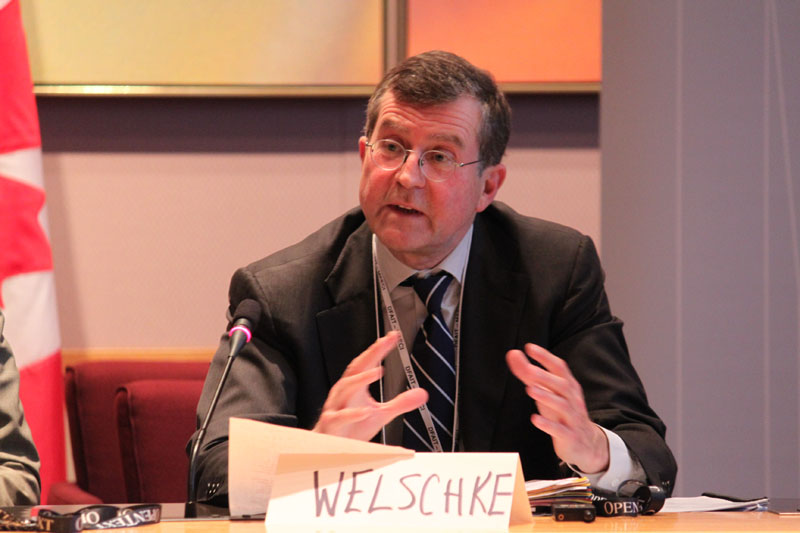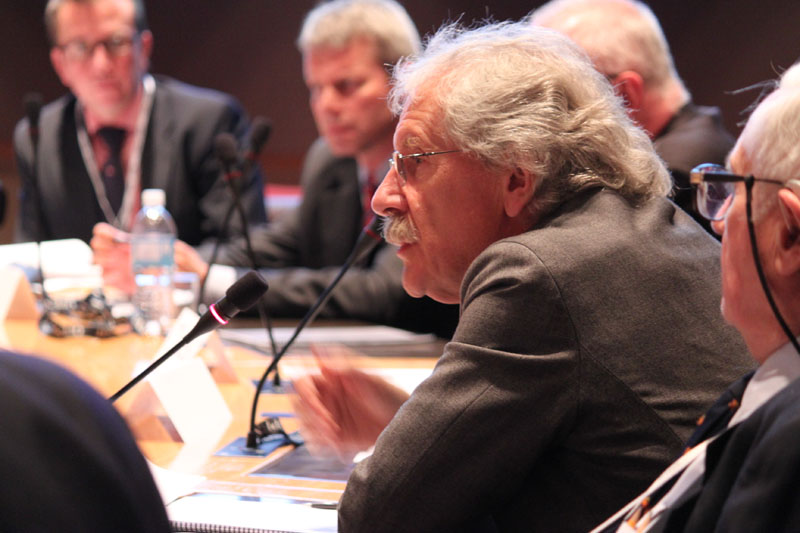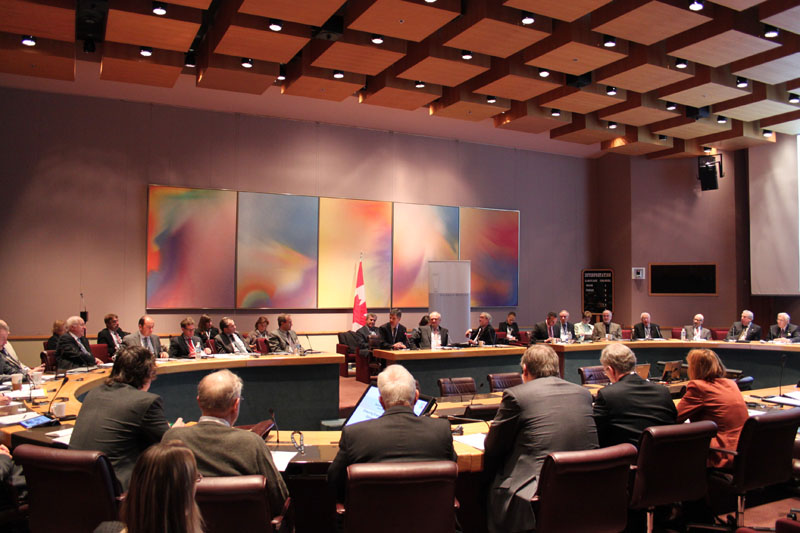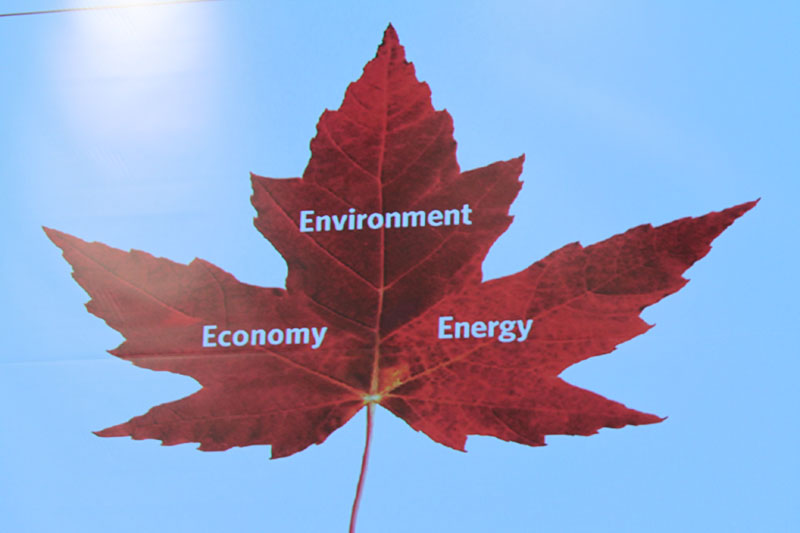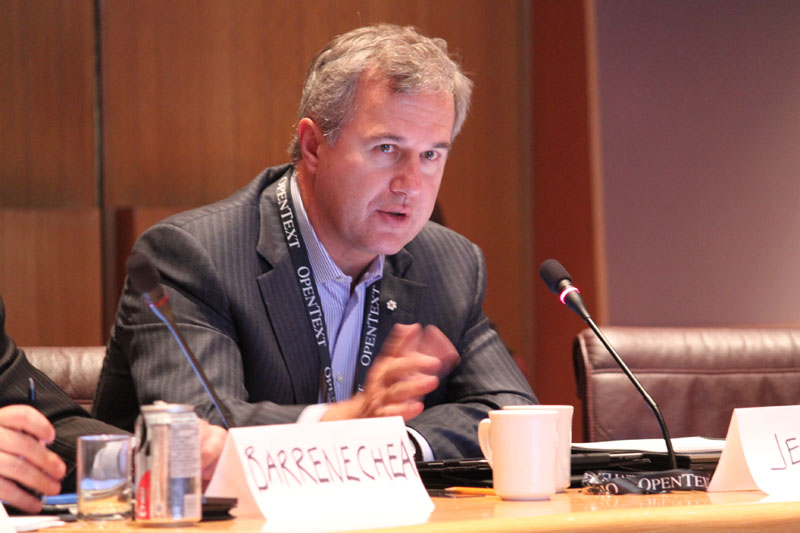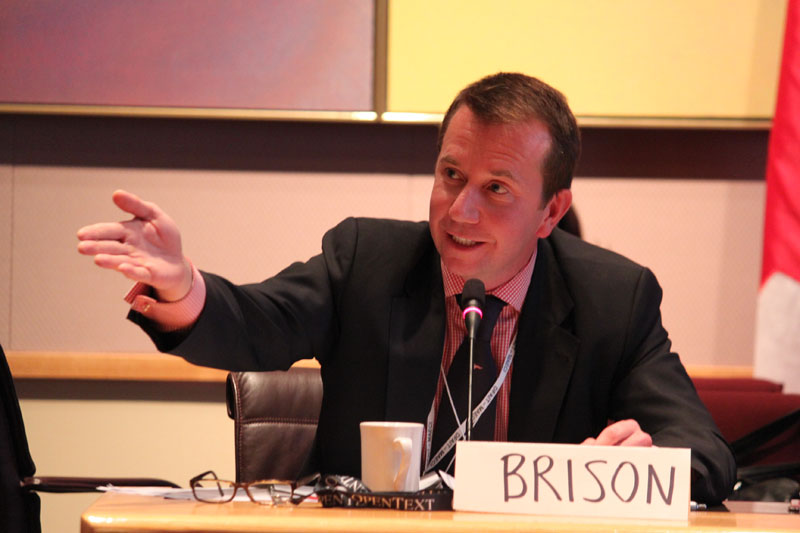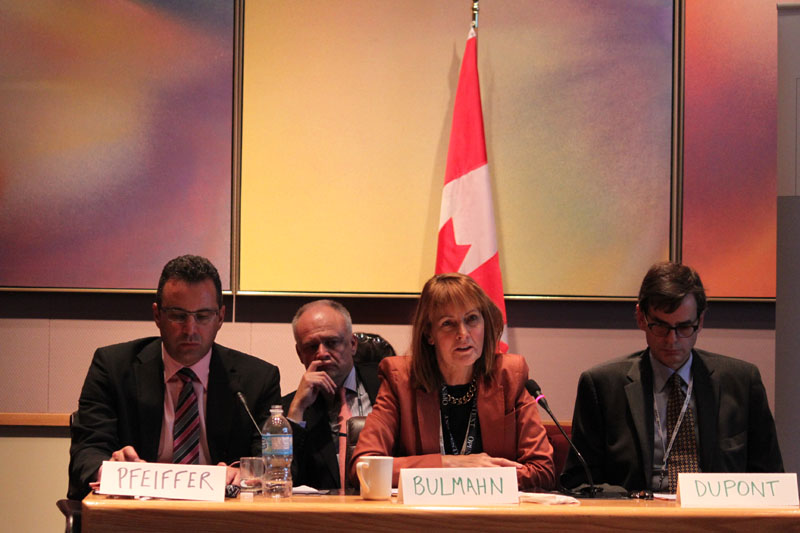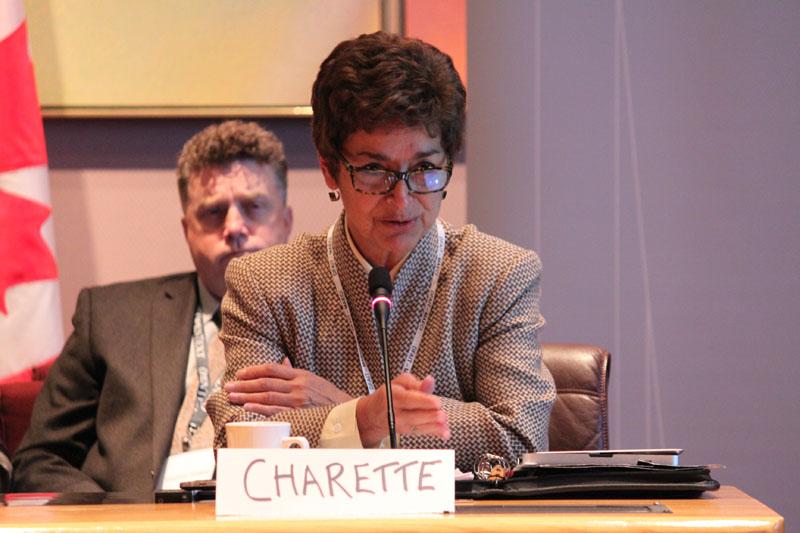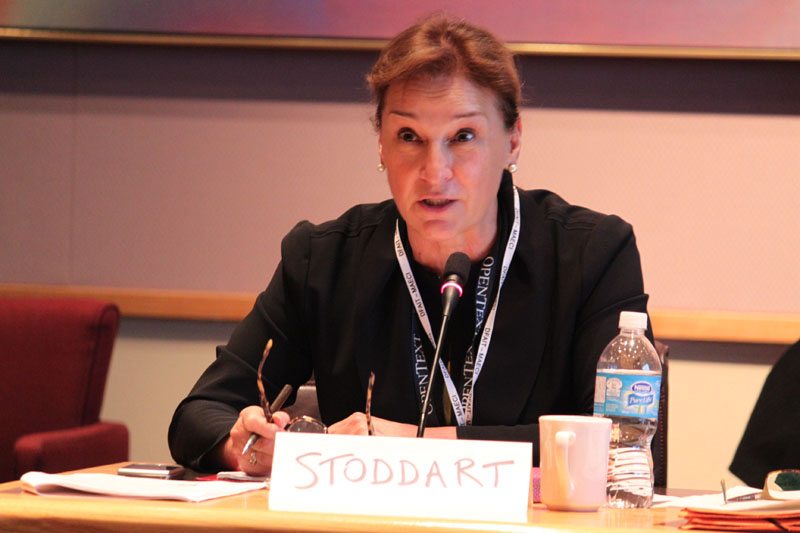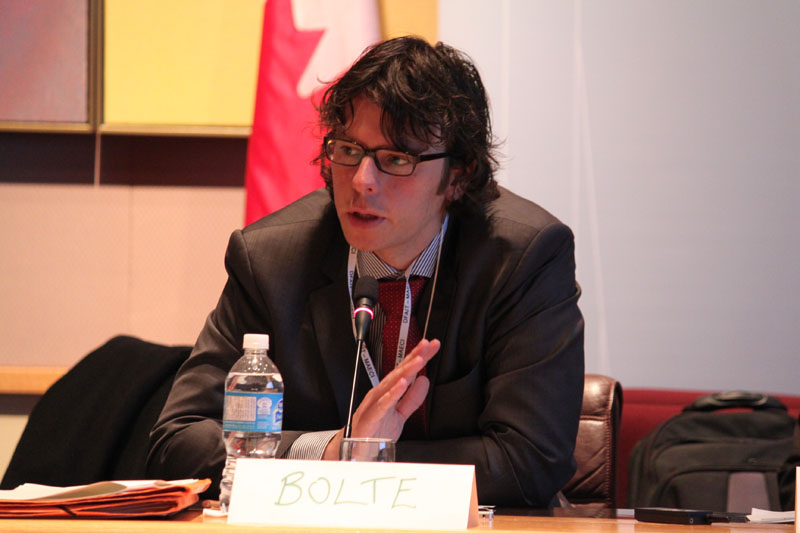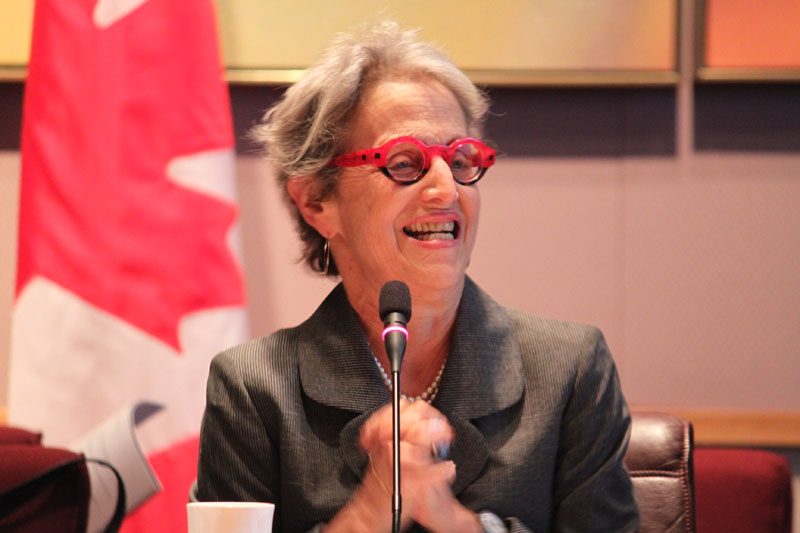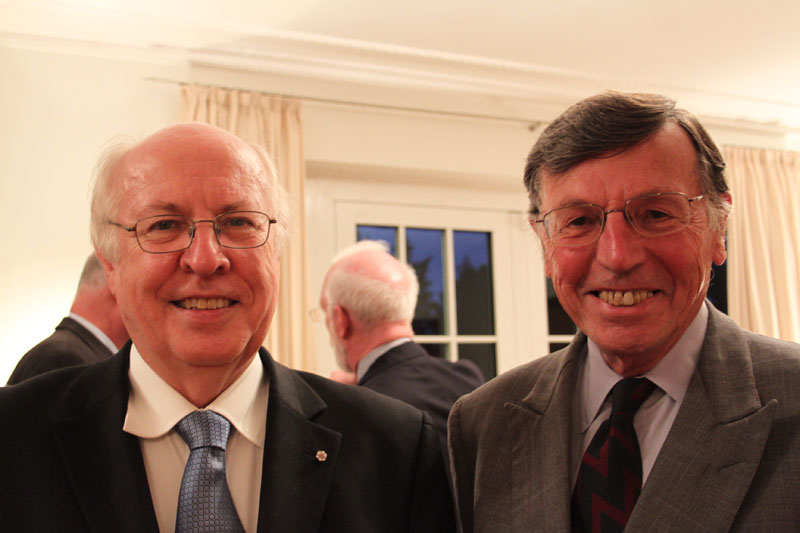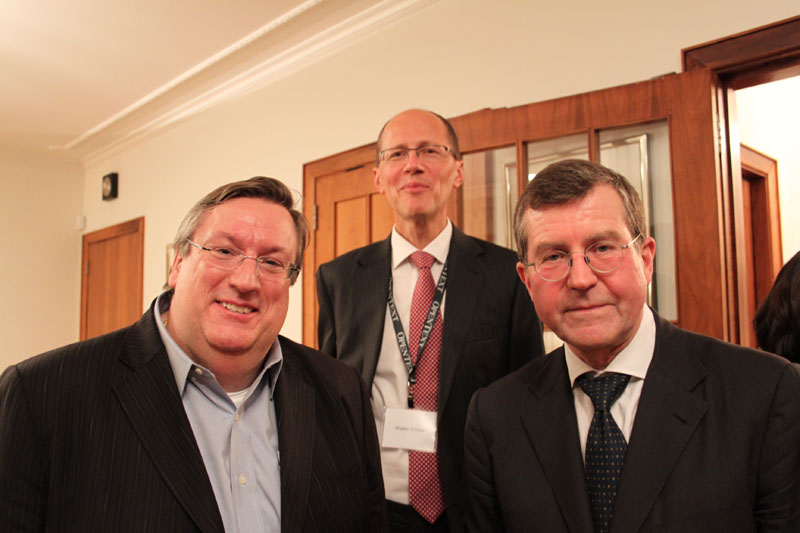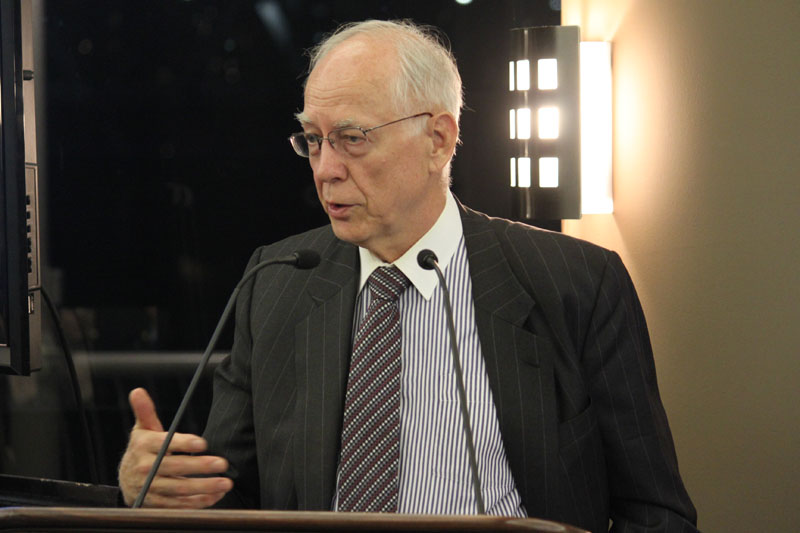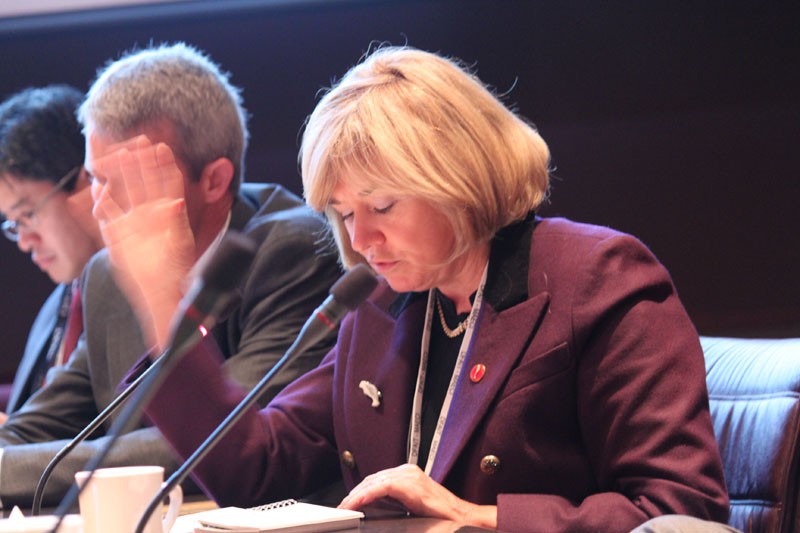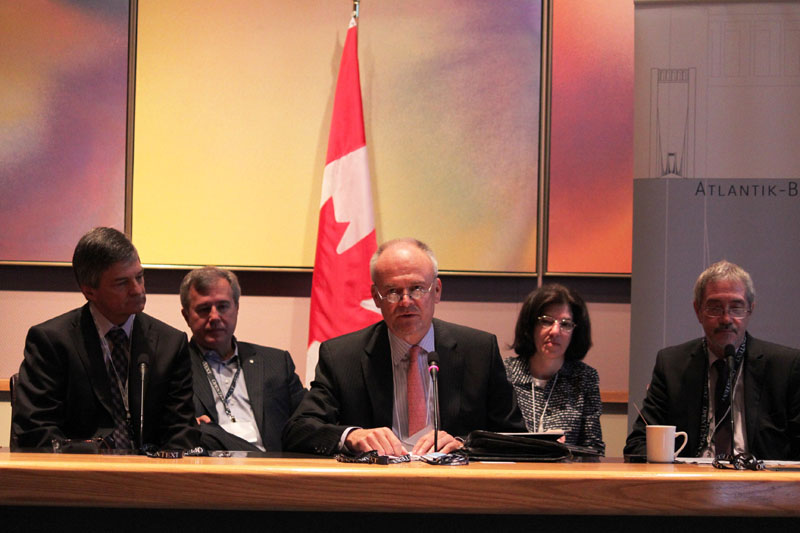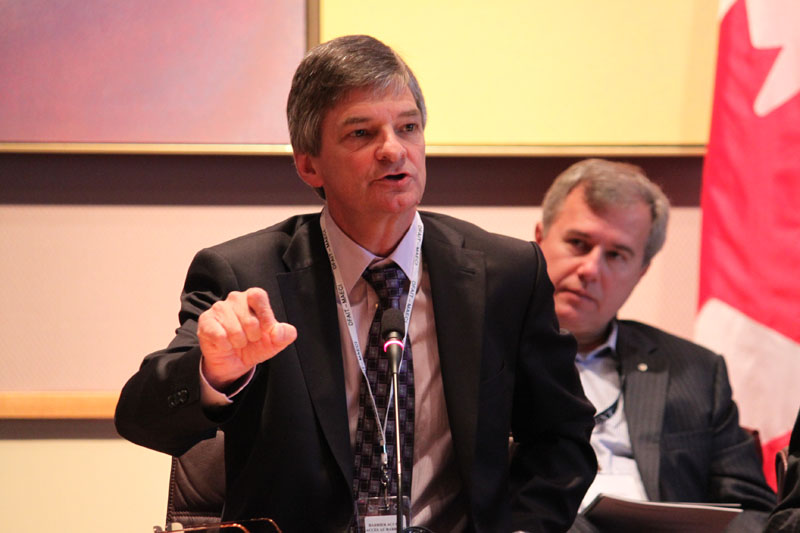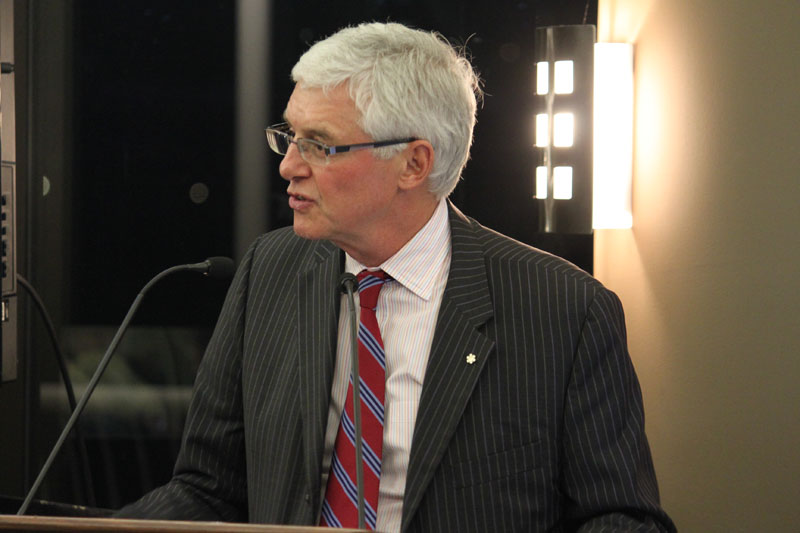Deutsch-Kanadische Konferenz 2012
Für die XXVII. Deutsch-Kanadische Konferenz der Atlantik-Brücke vom 29. September bis 1. Oktober 2012 in Ottawa kamen über 60 Vertreter beider Länder aus Politik, Wirtschaft, Wissenschaft und den Medien für einen intensiven Austausch zusammen. Diese jährlich – abwechselnd in Kanada und Deutschland – stattfindende Konferenz ist eines der traditionsreichsten Projekte der Atlantik-Brücke. Sie wird geleitet von Friedrich Merz, dem Vorsitzenden der Atlantik-Brücke und von Tom Jenkins, CEO des kanadischen IT- und Software-Unternehmens OpenText. Die kanadische Botschaft in Deutschland und die deutsche Botschaft in Kanada sind langjährige Partner der Konferenz.
In diesem Jahr standen „Open Government“ und „Energy Security“ im Fokus. Beide Themenfelder sind für Kanada und Deutschland von höchst aktueller Bedeutung. Konferenzteilnehmer und Gastredner fanden viele gemeinsame Anknüpfungspunkte für die Diskussion. (Link zum Artikel von Martin C. Wilhelm zum Thema Schiefergas)
The Honourable Kevin G. Lynch, ehemaliger Deputy Minister of Industry und Deputy Minister of Finance, Dr. Günther Horzetzky, Staatssekretär im Ministerium für Wirtschaft und Energie des Landes Nordrhein-Westfalen und Chris Bentley, Minister of Energy in der kanadischen Provinz Ontario eröffneten die Diskussion über Energiepolitik mit einem Vergleich der kanadischen und deutschen Perspektiven. Auch Infrastruktur als wichtiger Aspekt der Energiepolitik wurde diskutiert, mit Beiträgen von Bernhard Welschke, Leiter der Abteilung Nord- und Lateinamerika, Sicherheit und Global Governance beim Bund Deutscher Industrie (BDI), Ted Sargent, Canada Research Chair in Nanotechnology, University of Toronto und Bob Bleaney, Vice President, External Relations, Canadian Association of Petroleum Producers. In den Debatten wurde deutlich, dass Kanadier und Deutsche sehr unterschiedliche Aspekte der Energiepolitik bewegen. Für Kanada sind das Ende der kanadischen Energieversorgung aus Kohlekraftwerken sowie die stabile Nachfrage nach Energie wichtige Themen. Die Herausforderung für Kanada liegt folglich in der Entwicklung neuer Methoden der Energiegewinnung und der Erschließung neuer Absatzmärkte außerhalb Nordamerikas. Deutschland wiederum beschäftigt der Ausstieg aus der Atomkraft, die Sicherung der Energieversorgung durch mehr Energieeffizienz und die Senkung des Verbrauchs energieintensiver Industrie. Beide Länder verbindet aber das Interesse am Ausbau der Nutzung erneuerbarer Energien sowie die Entwicklung von innovativen Konzepten zur Energieeffizienz und Energie-Sicherheit.
Zum Thema „Open Government“ haben sich die Konferenzteilnehmer mit dem Potential von Social Media-Tools und neuen IT-Konzepten für die Politik beschäftigt. Besonders zugespitzt wurde das Thema von Mark Barrenechea, CEO von OpenText, der die Frage aufwarf „Wie entwickelt man die Regierung zur App?“ Weitere Beiträge kamen von Scott Brison, MP, Corinne Charette, Chief Information Officer, Government of Canada, Jennifer Stoddart, Privacy Commissioner of Canada, und Matthi Bolte, MdL (Die Grünen).
In der Residenz des deutschen Botschafters Werner Wnendt konnten die Teilnehmer bei einem Abendempfang in entspannter Atmosphäre weiter netzwerken.
Für die Unterstützung der XXVII. Deutsch-Kanadische Konferenz dankt die Atlantik-Brücke OpenText, dem Department of Foreign Affairs and International Trade Canada (DFAIT) sowie dem Canadian Museum of Civilization.
Will Shale Gas Lead to Transatlantic Rethink of Energy and Climate Policies?
by Martin C. Wilhelm
As the U.S. shale gas revolution is changing the Canadian energy landscape, a similarly seismic shift will be felt on the other side of the Atlantic: this was a leading theme of discussions at the German-Canadian Conference 2012. Turning U.S. shale from threat to opportunity may require a fundamental rethink of energy and climate policies, in Canada as much as in Germany and the EU.
Recent technological advances have made vast amounts of shale gas economically viable, leading to the largest increase in global energy reserve estimates in half a century. At the forefront of this development, the U.S. has experienced a boost in gas production and a dramatic drop in prices to 30% of European, 20% of Asian prices. Cheap, low-carbon gas is replacing coal in power generation as well as oil in industry and transportation, bringing down electricity and oil prices, putting the U.S. on track to meet 2020 carbon emission targets, while advancing independence from Middle Eastern oil. The U.S. has turned into one of the most competitive locations for energy intensive industries, attracting investment from around the world. While this is good news for U.S. employment, growth, fiscal and trade balances, it creates challenges for the rest of the world. Coming from very different positions in global energy markets Canada and Germany are affected in different ways.
Canada, with one of the world’s largest fossil fuel reserves, has its oil and gas export infrastructure historically tied to the U.S.. As shale gas and pipeline bottlenecks push down export volumes and prices, Canada is committing to diversify to faster-growing, higher-priced Asian energy markets. Canadian LNG exports would help integrate global gas markets and limit intercontinental price differentials. However, building the export infrastructure in a way that balances concerns of First Nations, provinces and environment with competitive realities in Asian gas markets will not be easy. Also, as global energy markets adjust to the shale gas revolution, investments in Asia-bound oil and gas infrastructure will be exposed to new risks that will influence Canada’s future energy and climate strategy.
Export-dependent Germany has committed to expeditiously phasing out nuclear energy, while sticking to an ambitious path of renewable energy growth, efficiency gains and carbon emission reductions. With competitively priced coal imports from the U.S., high European gas prices and ultra-low CO2 prices, zero-carbon nuclear power is being replaced by high-carbon coal. Even with the rapid buildup of renewables, financed through a steep electricity surcharge, this nuclear-to-coal-switch makes 2020 emission targets look increasingly ambitious. Germany’s energy competitiveness is getting squeezed from two sides, with energy prices sinking fast in North America while rising sharply at home. Germany may find that shale gas challenges key assumptions of ‘Energiewende’ as well as competitiveness and credibility of Europe’s energy and climate policy.
If the world is experiencing a dramatic increase in unconventional oil and gas reserves while on an unsustainable +4°C trajectory, there may be too much, not too little fossil fuel to burn without causing serious climate problems. Without a climate framework that includes the largest greenhouse gas emitters, countries like Canada or Germany may find it hard to balance sustainability and competitiveness. A second-best policy might then require aggressively strengthening innovation systems and R&D towards breakthrough technologies, from energy conservation and renewables to carbon- and water-efficient hydrocarbon production. Canada’s supply and Germany’s demand side positions in energy markets create many areas for cooperation and technology leadership, ideally within a transatlantic free-trade zone. Shale gas could then serve as a bridge towards a low-carbon economy.

